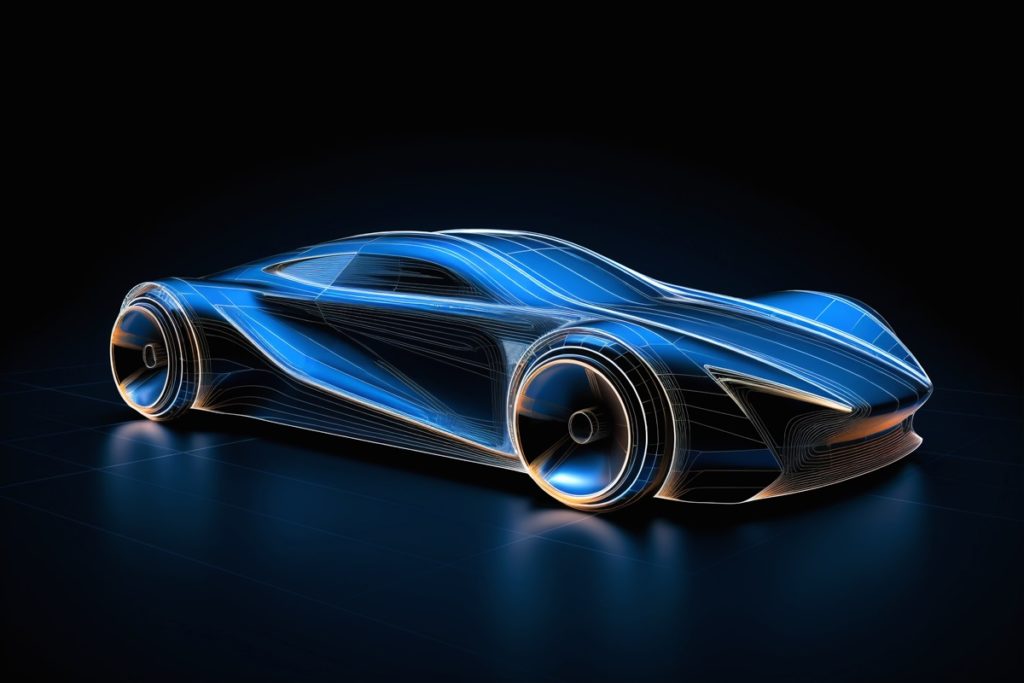This market research report was originally published at the Yole Group’s website. It is reprinted here with the permission of the Yole Group.
New players are entering the automotive market through different routes as vehicle features are evolving.
The evolution of new automotive features away from the core expertise areas of traditional OEMs is creating opportunities for many players to enter the automotive market.
In the past, OEMs such as Ford, Hyundai, Renault and Toyota focused on developing vehicle engines and powertrains, as for many years consumers were looking to purchase a fast car with a powerful engine. But now they are prioritizing ADAS features and infotainment systems with better screens and driving features.
This is attracting new OEMs, technology and software companies as well as a wider range of semiconductor firms, which are all positioning differently depending on the sector they originate from, notes Hugo Antoine, Technology & Market Analyst, Computing at Yole Group.
Yole Group’s report, Computing & AI for Automotive, delves into the automotive computing ecosystem and the evolving market landscape. This report is a part of Yole Group’s extensive suite of automotive analyses. Yole Group has honed its expertise in semiconductors specific to the automotive industry, offering insights from market and technology analyses to automotive teardowns. Their products provide a thorough understanding of current challenges and business opportunities in the sector. Explore the entire collection HERE.

We hope you enjoy this latest insight from Yole Group’s experts!
Powerful processing requirements drive market repositioning
Tesla led the way in developing in-vehicle computing features, followed by Chinese competitors including Zeekr, NIO and Li Auto. Within the ADAS/AD segment, companies such as Waymo and Cruise that are focused on robotaxi and robotic mobility are not making their own vehicles, motors or engines but only focusing on the software and processor side.
There is also a shift among semiconductor companies, which were typically led by ST Microelectronics, NXP and Renesas when the focus was on the engine, as they are strong in developing microcontroller (MCUs). As drivers demand more features and larger screens, vehicles require more powerful processors and smartphone-like screens that electronics companies excel at producing. Enter the likes of Samsung, NVIDIA and AMD, which are capitalizing on the opportunity to enter the automotive market.

Whereas in the past OEMs partnered with Tier 1 suppliers for different parts of the vehicle, now that ADAS and infotainment are more important in the car and influence consumers’ decision-making, they want to have more control over their supply chains to avoid supply or geopolitical disruptions. OEMs are now working directly with semiconductor companies such as Mobileye to develop devices that fit their vehicles – and in the case of Volkswagen, for example, creating a software subsidiary, Cariad.
Centralization, custom processors key to new functionality
When it comes to autonomous functionality for consumer vehicles, companies are most active in Level 2 and Level 2++, which requires a camera with processors and sensors to improve the safety as well as the driving experience.
This is driving a trend towards centralization, as achieving better ADAS requires a vehicle that is well built and easy to update.
“When there are many sensors like cameras, radars and lidars, it’s more efficient to have a central platform with a strong processor. This plays to the strength of companies like NVIDIA and legacy processor providers like Qualcomm that are entering the market. NVIDIA is very strong in ADAS platforms because it knows how to make a powerful AI chip. The central processor market is mostly divided between NVIDIA and Tesla, which makes its own custom chips. This year should see Qualcomm take off in the ADAS ecosystem, as it has been mostly a leader in the cockpit for infotainment.”
Hugo Antoine
Technology and Market Analyst for Computing and Software, Yole Group
Qualcomm increased its share of the $3.3 billion infotainment processor market to 29% in 2023, while the $4.1 billion ADAS market was led by Mobileye with around 49%, followed by AMD, NVIDIA and Tesla, according to Yole Group’s analysis.

The adoption of LiDAR, primarily in China, also requires powerful processors to scan the environment around the car and provide 3D visualization. This year has seen a move towards using Field Programmable Gate Arrays (FPGAs) as custom processors for LiDAR for the first time, a trend that is likely to arrive on the market heading into 2025. A newer technology such as LiDAR is likely to undergo changes as it develops, and companies can program FPGAs more deeply to incorporate changes than an accelerated processing unit (APU) in a classic automotive processor.
Foundries compete for central processor production
These changing market dynamics are also feeding into the foundry sector, as most processor designers are fabless and do not manufacture their own devices.
“TSMC and Samsung are the most popular foundries for ADAS and infotainment chips, thanks to their expertise in advanced technology nodes. Samsung is currently manufacturing central processors for both NVIDIA and Tesla, but as the nodes go from 28nm to a smaller node like 5nm, competition between TSMC and Samsung is getting tougher, especially on yield rates, and so it would not be a surprise if Tesla switches to TSMC in the future.”
Hugo Antoine
Technology and Market Analyst for Computing and Software, Yole Group
Samsung is working to improve it nodes to stay at the forefront of the competition.
Yole Group will continue to track the market as these new trends unfold.
Stay tuned!


